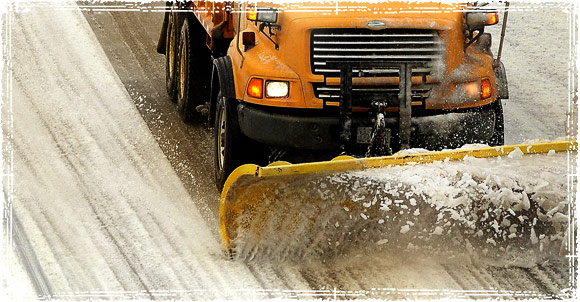Winter Driving Safety Tips: Staying Safe on Dangerous Winter Roads
Before you head out on the roads this winter, make sure your vehicle is ready for whatever nature has in store for you.

Before you hit the roads this winter, there are a couple of things you need to do to ensure your safety.
Vehicle Maintenance Checks
Winter weather can wreak havoc on your vehicle, which is why it’s so important to keep up on your vehicles routine maintenance needs. At the begging of every season, you need to do some routine checks.
- Make sure you check your vehicles fluid levels – Antifreeze, oil, and transmission fluids should all be checked and topped off before you leave. Also, make sure you have enough windshield washer fluid in the reservoir and that it’s rated for freezing temperatures.
- Check your Battery– If your battery is over 3 years-old, it’s probably a good idea to have it checked before heading out on a long road trip. Most auto part stores offer free battery checks, and they only take a couple of minutes of your time.
- Check your air pressure – Under inflation is the leading cause of tire failure, in the winter this can be a huge problem. When the temperatures start to dip, cold weather can cause your tires to become dangerously under inflated. For every 10 degree drop in temperature, your tires can lose as much as 1 pound per square inch (PSI) of pressure. Before heading out, make sure you check your tire’s air pressure.
- Routine Checks – Before leaving, give your vehicle a final once-over. Look for leaks, worn out hoses, cracks in your belts and make sure you inspect your tire tread. If anything looks out of whack, now is the time to take care of it.
Winter Vehicle Preparedness
If you’re heading out on a long distance trip to see the family, don’t overlook the need to bring along some emergency supplies. Many people make the mistake of thinking they’re safe because they’re traveling on a major highway, but that might not always be the case. Winter storms can quickly and easily shutdown even high traffic highways, leaving motorists stranded on the roadways until emergency help can make their way through the storm.
Just like any emergency gear bag, your vehicle kit should be adapted for the unique needs of your family. That being said, there are some common items that everyone should consider keeping in their vehicle – especially when traveling far from home.
What Gear should be in your Emergency Vehicle Kit?
Vehicle Maintenance & Emergency Repairs
- Spare Fuses
- Tire Pump, Patches & a can of Fix a Flat
- Properly inflated spare tire (preferably full size)
- Extra Oil
- Gas Can (if you can safely haul it on your vehicle)
- Antifreeze
- Jumper cables
- Spare Hoses & Fan Belts
- Fire extinguisher
Emergency Essentials
Every vehicle should have some sort of emergency bag, and that bag should be checked and changed out depending on the season. Essential winter supplies include:
Vehicle Specific Gear
- Ice scraper and snow brush
- Flares & other Signaling devices
- Tow and tire chains
- Shovel (to dig your way our if you get stuck)
- Bag of salt or cat litter (for traction when stuck)
- Reflective triangles and brightly colored cloth
- Quality Car Jack
- Tire Chains (great for extra traction in snow, mud & sand)
- Traction Matt or a couple of feet of rolled up carpet (Great for getting unstuck in snow, mud & sand)
Safety & Winter Emergency Preparedness Gear
- Cellphone with Backup Cell Charger
- Emergency Communication Gear
- Working flashlight with extra batteries
- A Gallon of water per person
- First aid Kit
- Non-perishable, high-energy foods. Granola bars, beef jerky, energy bars, dried fruits, and hard candy are all good to have on hand.
- Extra set of Warm Clothing (pants, socks, gloves, hat & rain gear)
- Blankets & Sleeping Bags
- Candles and a small tin can to hold the candle
- Water proof matches & Bic Lighter
Be Prepared To Stop
Far too many disasters happen on the roadways this time of year; sadly, a lot of these accidents happen because people aren’t willing to stop. Wherever you’re going can wait; driving through dangerous conditions just so you can make it to your destination on time is not something that’s worth dying over.
If road conditions are bad, please be prepared to stop and hold up at a hotel or a truck stop until the roads are in a safe traveling condition.

 Previous Post
Previous Post